Gregor Tresher e Sven Väth sono gli autori di “Catharsis”: un disco unico sotto diversi aspetti; il co-autore originario di Francoforte ce li ha raccontati in un esclusivo “track by track”.
È passato quasi un mese dall’uscita di “Catharsis”, secondo progetto “solitario” di Sven Väth nonché 50esimo progetto musicale di Cocoon. Già in passato abbiamo espresso il nostro profondo amore per questo lavoro – clicca qui per approfondire – sviluppato da Sven. Oggi, però, vi offriremo qualcosa in più: la storia di “Catharsis”, attraverso gli occhi di uno dei suoi protagonisti: Gregor Tresher.
Un artista eccezionale che ha affiancato il frontman par excellance di Cocoon in modo magistrale. Un album dal sound inconfondibile e con influenze provenienti da tutto il mondo. Proprio per questo, abbiamo deciso di proporvi un’analisi “track by track” dell’intero album, firmata dallo stesso Gregor Tresher. Prima di proseguire, schiaccia play e goditi ancora una volta “Catharsis” – acquistabile sullo store ufficiale di Cocoon.
Ciao Gregor, benvenuto su Parkett! Il tuo modo di fare musica è estremamente riconoscibile. Secondo te, quanto è importante per un musicista l’essere unico? Che ruolo ha giocato Cocoon nel tuo percorso musicale?
Penso che essere unici sia la cosa più importante. All’inizio, ogni aspirante produttore cerca di copiare la musica delle persone che ammira, ed è un ottimo modo per imparare le capacità di produzione, ma a un certo punto è importante trovare la propria voce e trovare idee uniche.
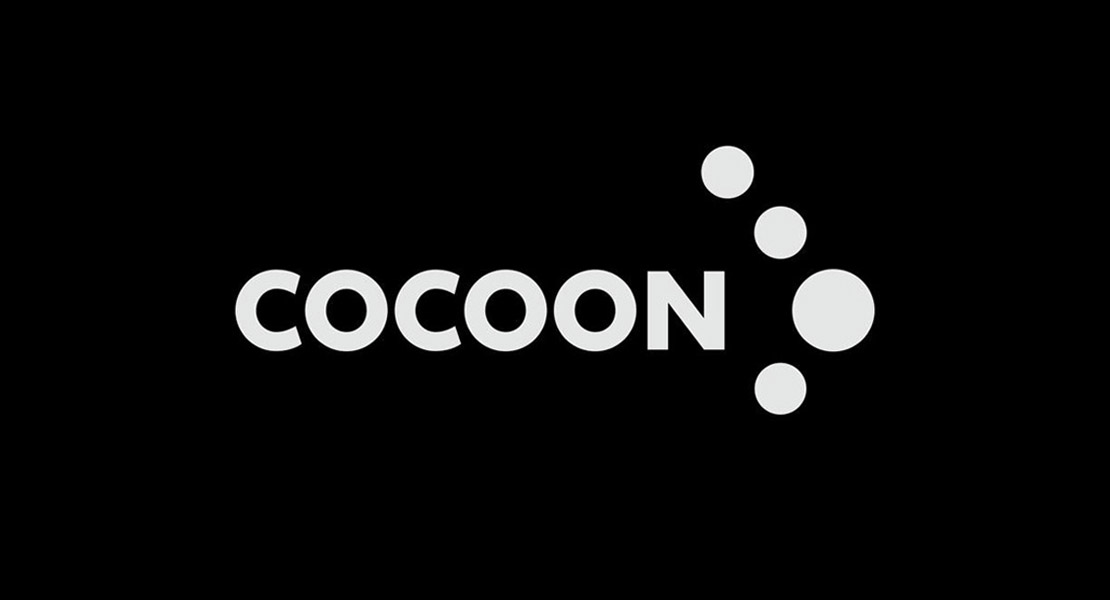
Cocoon (logo)
Cocoon era ed è tuttora uno dei marchi chiave per la musica elettronica dalla Germania, e in particolare a Francoforte. La visione di Sven è perfetta come sempre e sono felice di poter contribuire all’etichetta. Lavoro con loro da molto tempo e due anni fa mi sono unito al loro roaster di artisti. Sono molto amico di tutta la squadra e mi sembrava la cosa giusta.
Di recente Cocoon ha pubblicato Catharsis, l’ultimo album di Sven Väth. Hai lavorato con Sven per produrre questo album fianco a fianco. È la prima volta che lavorate a così stretto contatto?
È la prima volta che lavoriamo davvero insieme in studio. Ci conosciamo da molto tempo, ma non ci siamo mai seduti in studio insieme prima: è stato un periodo piuttosto eccitante.
All’inizio avevamo programmato di fare insieme solo il singolo, “Feiern”, ma entrambi abbiamo sentito un certo tipo di energia e magia nella stanza, così abbiamo deciso di continuare. Poi all’improvviso ci siamo resi conto che stavamo lavorando ad un album insieme ed abbiamo deciso di continuare insieme fino alla fine.
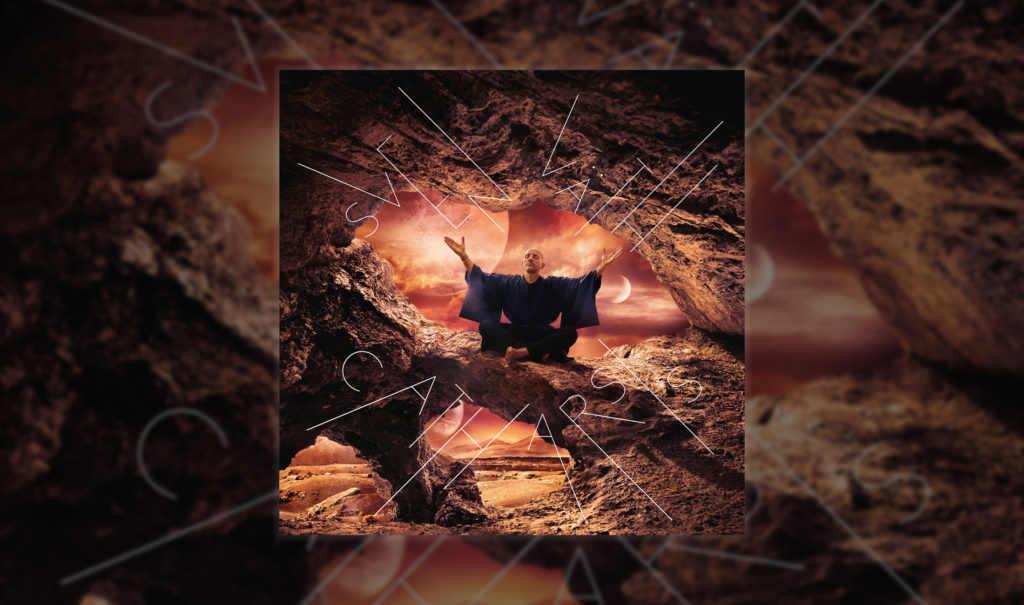
Nel comunicato stampa di Catarsi leggiamo: “La mia immaginazione per questo disco è stata alimentata dalle molte esperienze culturali e incontri che ho avuto nella mia vita”. Cosa rappresenta la musica nella tua dimensione quotidiana?
Penso che la musica significhi cose diverse per tutti. Ho sempre pensato che fare musica riflettesse lo stato d’animo del momento particolare in cui sto componendo.
È divertente, certo, ma a volte penso che più io sia turbato nel momento in cui compongo, più sia in grado di fare una musica significativa. Mettiamola così: se tutto è perfetto nella tua vita, dubito che si sia in grado di fare musica che parli ad altre persone.
Ogni traccia è diversa l’una dall’altra. Qual è stata la track più difficile da realizzare?
Non ci sono state davvero molte difficoltà nello scrivere le canzoni. È avvenuto tutto in modo naturale. Abbiamo letteralmente buttato giù le idee generali per ogni canzone in un giorno, o giù di lì. Naturalmente, dopo inizia il lavoro vero, trovare i suoni giusti, mixare, arrangiare, ecc.
L’unica canzone che mi ha impegnato per più tempo nella stesura è stata “Mystic Voices”. Avevamo forse 6 o 7 linee melodiche diverse e ci è voluto un po’ di tempo per trovare quella giusta.
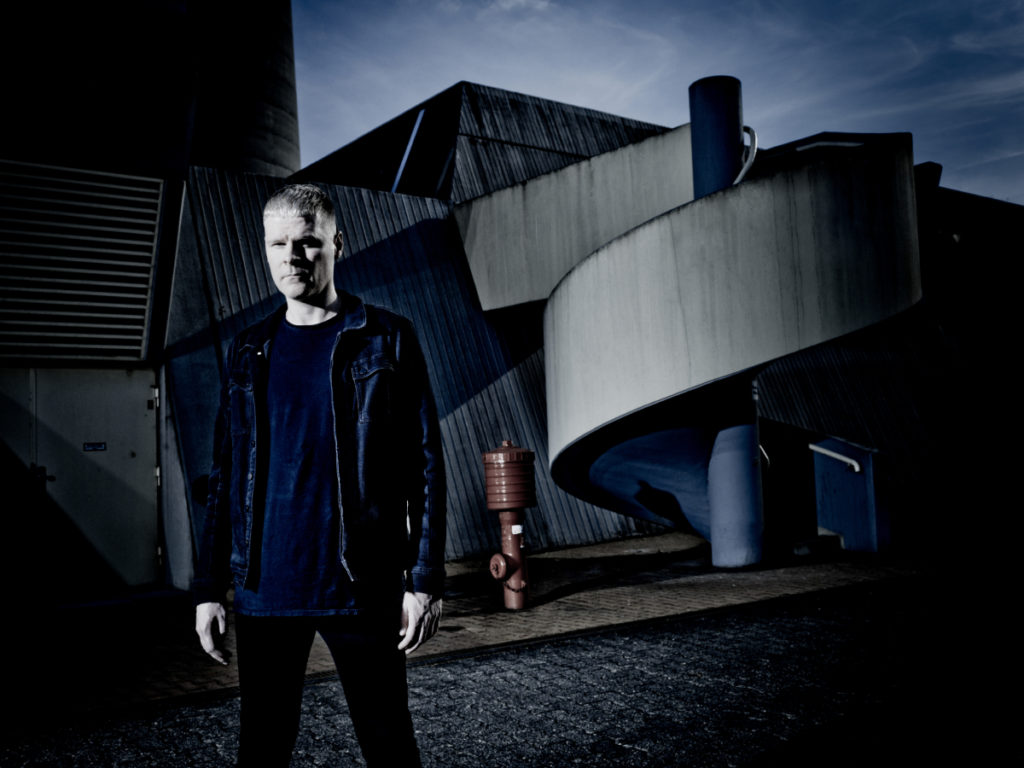
Gregor Tresher. © Foto Ufficio Stampa
Sempre nel comunicato leggiamo: “Catharsis è un album avventuroso che cattura i momenti belli, i momenti tristi e, soprattutto, i tempi della speranza“. Cosa significa Catarsi per Gregor Tresher? Questo significato è legato anche alla recente situazione pandemica?
Suppongo che tutti si rivedano e comprendano l’idea base di una catarsi, una pulizia dell’anima. I titoli dei brani sono emersi durante la produzione e, naturalmente, Sven è stata la principale fonte di ispirazione per i titoli.
Penso che la catarsi possa essere interpretata in molti modi: dallo sbarazzarsi di questa orribile pandemia all’aprire la mente alle cose positive della vita.
Ho notato che la tracklist è diversa da un formato all’altro (CD, Vinile o Digitale). C’è un motivo particolare? O è dettato da ragioni legate alla registrazione sul formato fisico?
Il motivo è semplice: abbiamo dovuto arrangiare le canzoni in un certo modo sul vinile. Ci sono limitazioni fisiche legate alla durata della musica su ciascun lato di un disco.
Abbiamo cercato di tenere a mente l’ordine originale della tracklist, ma anche di dare a ciascuna canzone uno spazio sufficiente in modo che la qualità del suono non ne risentisse.

Gregor Tresher. © Foto Ufficio Stampa
Catarsi inizia con “What I used to play”. Come mai avete optato per un brano così evocativo come open track?
Abbiamo pensato che fosse la giusta canzone di apertura per via del suo arrangiamento. Ma è anche una specie di chiusura o riassunto della musica precedente di Sven. Il brano pone le basi per nuove avventure musicali. In un certo senso dice “Eccomi!”.
Dopo si continua con “The Worm”. Un suono sinuoso, la linea dei bassi potente, i clap che danno ritmo. Tutto abbracciato da una semplice melodia. È proprio vero, la semplicità paga..
Ad essere onesti, è uno dei miei preferiti in assoluto dell’album. È minimalista ma anche complesso. Quando i clap con il “long reverb” entrano dopo la prima pausa, secondo me è qualcosa di unico: lo rende un beat perfetto.
Per quanto riguarda la title track Catharsis?
Abbiamo usato una registrazione che Sven ha preso durante una celebrazione sul fiume Gange in India e abbiamo elaborato il campione in modo abbastanza radicale per adattarlo al groove. È la base della traccia e pone le basi per tutto il resto.

Gregor Tresher. © Foto Ufficio Stampa
“The Inner Voice” è la mia canzone preferita dell’album. Mi piace l’idea che queste due canzoni (“Catharsis” e “The Inner Voice“) siano collegate dal significato. È stato più difficile creare un suono così originale?
È bello sentire questo, “The Inner Voice” è anche uno dei miei brani preferiti. Ad essere onesti, questa traccia è stata creata in fretta e furia in appena un paio d’ore. Sven ha suonato lui stesso la melodia principale sulla tastiera.
Entrambi amiamo l’elettronica e dal punto di vista della produzione, le canzoni elettroniche sono piuttosto “semplici” per me. Alla fine è la melodia che rende grande o semplicemente mediocre un brano, tutti possono programmare un beat electro. La sfida è creare un groove vincente e utilizzare i giusti suoni di batteria. A volte le pause tra i tamburi sono più importanti dei tamburi stessi.
A mio avviso, “Feiern” è una delle canzoni più ispirate dell’album. Qual è l’elemento che attribuisce maggior valore al brano?
Feiern è stata la prima canzone che abbiamo realizzato, ed è l’unica che è stata creata a distanza, quindi non eravamo in studio insieme per questa. Sven aveva la voce e un’idea di come dovesse suonare la traccia, e ho cercato di ricrearla. Ovviamente, la strumentale non è lontana dalla musica che ho fatto in passato, ma è la voce che alla fine eleva la canzone.
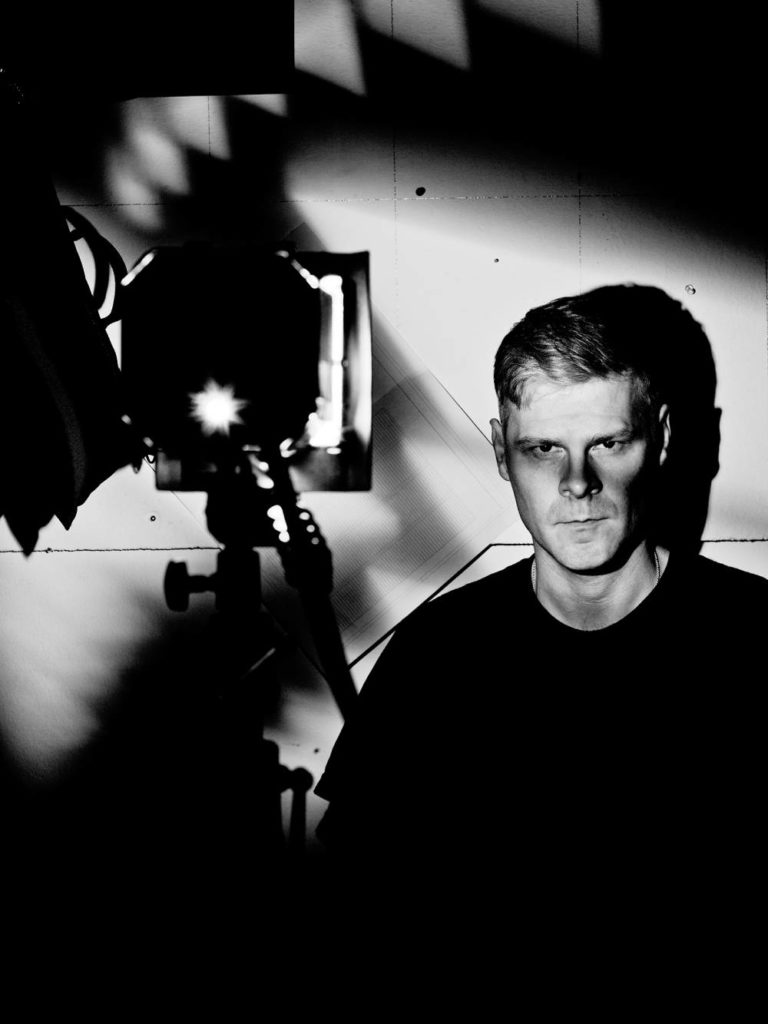
Gregor Tresher. © Foto Ufficio Stampa
Dopo “Feiern“, ascoltare “Mystic Voices” è un pugno in faccia: ha un suono potente ed incalzante. Penso che “Mystic Voices” sia più vicino di altri brani ad un suono techno. Ci sono stati dei riferimenti che hanno influenzato il tuo lavoro come co-produttore?
Darei a Mathew Jonson l’ispirazione per questa canzone, anche se è difficile da realizzare dalla traccia finale. Sven ed io abbiamo ascoltato alcune delle nostre tracce preferite prima di lavorare all’album, e ovviamente saltavano fuori anche le tracce di Mathew.
Fondamentalmente è un lead SH-101 che fa la traccia, come avviene in alcune delle tracce leggendarie di Mathew. Penso che sia giusto lasciarsi ispirare dalla musica delle persone che ammiri per iniziare una canzone, e poi, se tutto va bene, ti viene in mente qualcosa che è tuo e non solo una copia di qualcos’altro.
“Being in love” propone un suono totalmente diverso, molto più rilassato. Perché hai deciso di optare per questo tipo di sound?
Abbiamo costruito questo brano attorno a un campione vocale che alla fine non abbiamo potuto usare per problemi di copyright, ma abbiamo pensato (e siamo convinti) che la traccia funzionasse anche senza la voce.
Con “Butoh” ritorna il ritmo frenetico. Interessante notare che il titolo si riferisca ad una forma di teatro di danza giapponese. Come mai questo tributo alla cultura giapponese?
Entrambi siamo grandi ammiratori della cultura giapponese; Tokyo è stato il luogo che mi ha lasciato senza fiato più di ogni altra città che abbia visitato.
Sven ha un legame ancora più profondo con il Giappone poiché ha trascorso molto più tempo lì ed è anche profondamente ispirato da esso.

Gregor Tresher. © Foto Ufficio Stampa
In successione poi ascoltiamo “Nyx“. Il nome è ispirato al mito greco la dea della notte. Che ruolo gioca la notte nella tua musica?
La notte è tutto: è dove è successo tutto in entrambe le nostre carriere ed è il fondamento della cultura del club. La notte è solo magia.
Qual è il tuo brano preferito di quest’album? Secondo te, qual è la canzone di Catharsis perfetta per il club?
I miei preferiti sono “The Worm” e “The Inner Voice“. I migliori club banger secondo me rimangono “Mystic Voices” e “We Are“.
“The Cranes of Gangtey Valley” la definirei come una traccia ambient. Hai mai fatto canzoni di questo tipo prima di questo?
Ho pubblicato diversi album con il soprannome di Sniper Mode nei primi anni 2000: la musica ambient ha un posto molto speciale nel mio cuore e vale lo stesso per Sven.
In “We Are” sentiamo all’incirca queste parole “Siamo nel modo in cui tutti ci vogliono e come ci hanno fatto”. Senti il peso della tua figura pubblica?
Questa credo sia una domanda a cui solo Sven potrebbe rispondere.
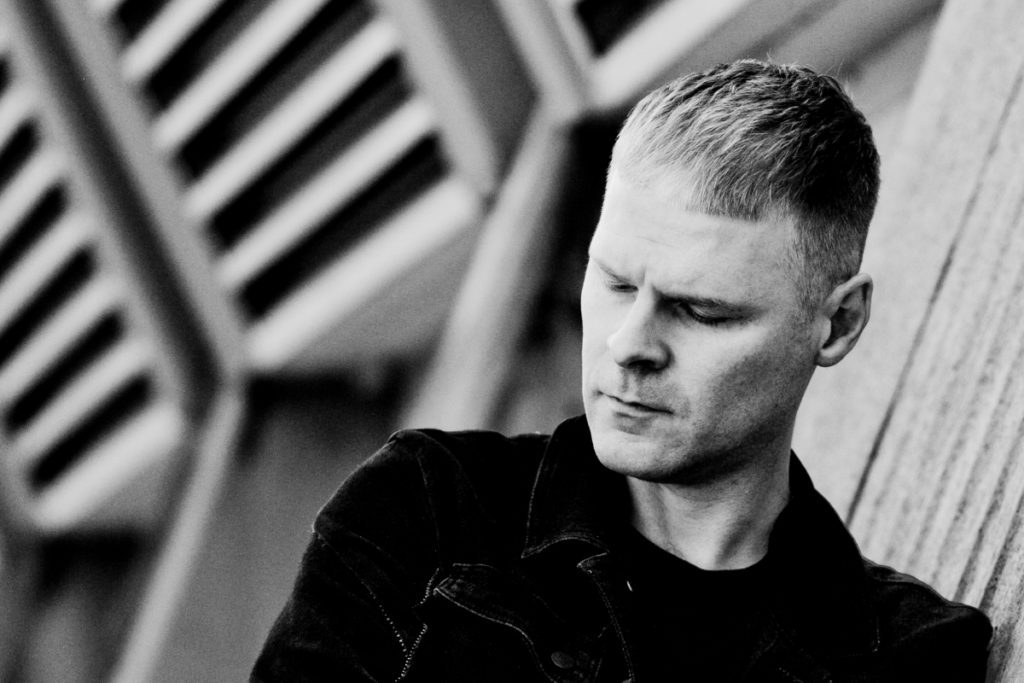
Gregor Tresher. © Foto Ufficio Stampa
“Silvi’s Dream” propone un sound romantico, una sorta di lettera d’amore. Cos’è l’amore per Gregor Tresher?
Per me, l’amore è il fondamento della club culture e della musica elettronica. Lo stato mentale di trovarsi nel momento e nel luogo perfetto quando si è su una pista da ballo è ciò di cui stiamo parlando.
E, infine, “Pantha Rei”. Sei soddisfatto di ciò che tu e Sven avete fatto?
Sono grato e perfettamente soddisfatto dell’album. Avrà sempre un posto speciale nel mio cuore e sono grato per il tempo che abbiamo trascorso insieme a realizzare questo disco e per l’ispirazione che abbiamo sentito. Era pura magia.

Gregor Tresher. © Foto Ufficio Stampa
ENGLISH VERSION
Hi Gregor, welcome to Parkett! You are one of the most particular Djs in the world. Your musical philosophy is caracterized by analogic machines and many more. How is important for a musician to be unique? And how many important was Cocoon for you?
I think being unique is the most important thing. In the beginning, every aspiring producer tries to copy music from people they admire, and that’s a great way to learn the production skills, but at some point it’s important to find your own voice and come up with unique ideas.
Cocoon was and still is one of the key brands for electronic music from Germany, and especially from Frankfurt. Svens vision is as healthy as ever and I am happy to being able to contribute to the label. I’ve been working with them for a long time and joined their artist roster two years ago for my bookings as well. I am close friends with the whole team and it just feels right.
Recently Cocoon published Catharsis, which is the last one Sven Vath’s album. You worked with Sven to produce this album side by side. How do you organize the work?
It’s the first time we really worked together in the studio. We have known each other for a long time, but never really sat down in a studio together before, so it was quite an exciting time. At first we only planned to do his single “Feiern” together, but we both felt a certain kind of energy and magic in the room and decided to continue. Then suddenly we realized we’re working on an album for him and that’s what we ended up doing.
Catharsis press release says: “My imagination for this record was fueled by the many cultural experiences and encounters I have had in my life. They gave me the strength to find a way, the way to myself”. What the music rappresent in your daily dimension? Is it a way to dialogue with your deepest part?
I think music means different things to everyone – for me personally I always felt like making music reflects my state of mind at the particular moment I’m making the songs. It’s funny, but sometimes I think the more troubled I feel, the more meaningful music I’m able to make. Or lets put it this way, if everything is perfect in your life, I doubt you will be able to make music that speaks to other people.
Every tracks are different from each others. What was the song more difficult to make? Would you like to tell us the reasons?
There really weren’t a lot of difficulties writing the songs. Everything happened quite naturally. We literally kind of finished the raw ideas for every song in a day or so. Of course, after that the work starts, finding the right sounds, mixing, arranging, etc. The only song I remember that took us quite some time was “Mystic voices“. We had maybe 6 or 7 different melody lines and it took us quite some time to come up with the right one.
At the end of Press Release, it’s written: “Catharsis’ is an adventurous album that captures the good times, the sad times, and most importantly, the times of hope”. What Catharsis means for Gregor Tresher?
Well I guess everybody can identify with the basic idea of a catharsis, a cleanse of the soul. The track titles came up during the production, and of course Sven was the main source of inspiration for the titles. I think Catharsis can be interpreted in many ways: From getting rid of this horrible pandemic to opening your mind up to the positive things in life.
Tracklist is different from one to another format (CD, Vinyl or Digital). Is there a particular reason? Or is this driven by reasons connected to the registration of the physical format?
The reason is basically that we had to arrange the tracks in a certain way on the Vinyl – there are physical limitations to the duration of music on each side of a record. So we tried to keep the original order of the tracks in mind, but also give each track enough space so the sound quality doesn’t suffer.
Catharsis starts with “What I used to play”. Why You and Sven decided to use it as open track?
We thought it was the right opening track regarding its arrangement, but also it’s kind of a closure or summary to Svens previous music and sets the ground for new musical adventures. It kind of says „Here I am!“.
Then, we can listen “The Worm”. The sinuous sound of this song gives a perfect idea. Bass line is so power. The simple melody relates to other parts, perfectly. What’s kind of feeling you wanted evoke by this song?
To be honest, it’s one of my absolute favorites on the album. It’s minimalistic but also really raw. When the Claps with the long reverb come in after the first break, it’s kind of the perfect beat in my opinion.

The sound of song “Catharsis” is tribal oriented. I listen a sort of Djambè for example. Why did You and Sven prefer a tribal sound for this track?
We used a field recording that Sven took at a celebration on the Ganges river in India and processed the sample quite radically to make it fit the groove. It’s the foundation of the track and sets the stage for everything else happening.
“The Inner Voice” is my favorite song of the album. I love idea that these two songs (“Catharsis” and “The Inner Voice”) are connected by the meaning. You build a sort of oniric dimension. How many time did you spend to make this song?
That’s nice to hear, “The Inner Voice” is a favorite of mine as well. To be honest, this track was created in a rush in just a couple of hours. Sven actually played the main melody on the keyboard himself. We both love electro and on the production side, electro tracks are kind of pretty “easy“ for me to do.
But in the end it’s the melody that makes a track great or just mediocre, everybody can program an electro beat. The challenge is to make it groove and use the right drum sounds. Sometimes the pauses in-between drumbeats are more important than the drums themselves.
“Feiern” is one of the most inspired songs of the album.What is the element that makes this song special?
Feiern was the first song we made, and it’s the only one that was created over a distance, so we weren’t in the studio together for this one.
Sven had the vocals and an idea what the track should sound like, and I tried to recreate this. Obviously, the instrumental is not far away from the music I made in the past, but it’s the vocals that lift the song up in the end.
After listen “Feiern”, to listen “Mystic Voices” is a punch on face. I mean it is powerful and so deep. I think “Mistic Voice” is closer than others to a techno sound. Were there some references which influenced your work as co-producer?
I would credit Mathew Jonson as inspiration for this song, even though it’s hard to realize from the final track. Sven and myself listened to some of our favorite tracks before working on the album, and obviously Mathews tracks were coming up as well.
It’s basically an SH-101 lead that makes the track, like in some of Mathews legendary tracks. I think it’s ok to be inspired by music by people you admire to start a song, and then hopefully you come up with something that’s your own and not just a copy of something else.
“Being in Love” is totally different. Sound of this is song is more relaxed than other ones. Why did you decide to propose this kind of sound for this track?
We built this track around a vocal sample that we couldn’t use in the end due to copyright issues, but thought that the track works without the vocals as well.
“Butoh” is one of my favorite track of Catharsis. It’s a form of Japanese dance theatre that encompasses a diverse range of activities. This particular style of dance was born around in the 60s of the last century. Do you like Japanase culture?
Both of us are huge admirers of Japanese culture, to me personally Tokyo was the place that blew me away more than any other city. Sven has an even deeper connection to Japan since he spent a lot more time there and is also deeply inspired by it.
Than We listen “Nyx”. The name is inspired by Greek myth the goddess of the night. I would like to speak about the role of the night in your music idea. How many important is the night for your music? Would you like to tell us why it is?
The night is everything, it’s where everything in both our careers happened and is the foundation of club culture. The night is just magic.
What is your favorite track of Catharsis? In your opinion, what is the song of Catharsis which is perfect for clubs?
My highlights are “The Worm” and “The Inner Voice“. The perfect club bangers to me are “Mystic Voices” and We Are.
“The Cranes of Gangtey Valley” is an emotional song. I would define it like an ambient track. Did you ever make song of this type before this? Do you like this kind of sound?
I released several albums under my Sniper Mode moniker in the early 2000s, ambient music has a very special place in my heart and it’s the same for Sven obviously.
“We Are” presents a very particular sound. During the song, we listen “We are what all want us and made us”. I think this sentence is perfect to define the meaning of song. Do you feel the weight of your public figure? Is it hard having to deal with the public’s idea of your music?
I think this is a question only Sven can answer.
“Silvi’s Dream” proposes a romantic sound. I think it’s like a love note. What is love for Gregor Tresher? Was it difficult turn your emotions into music?
To me, love is the foundation of club culture and electronic music. The mind state of being in the perfect moment and place on a dancefloor is what it’s all about.
At the end, we can listen “Pantha Rei”. Are you pleased with what You and Sven have done? Would you like to change something?
I am thankful and perfectly happy with the album. It will always have a special place in my heart and I am thankful for the time we spent together making this record and the inspiration we felt. It was just magic.
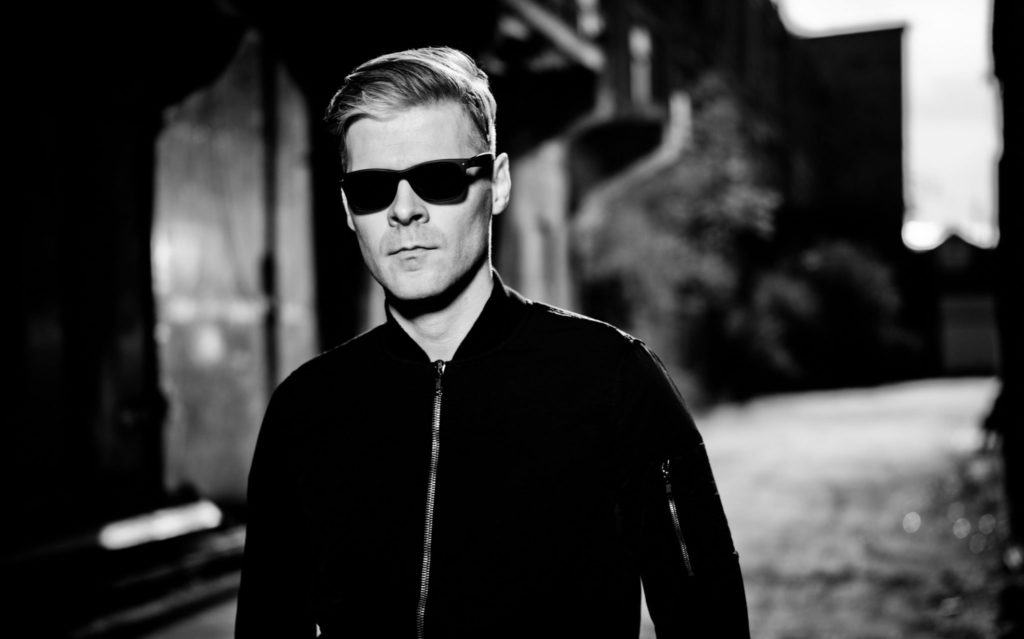
Gregor Tresher
